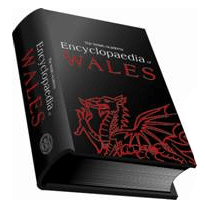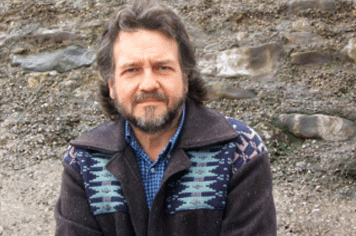Edited by John Davies, Nigel Jenkins, Menna Baines, & Peredur I. Lynch the work runs to more than 1200 illustrated pages. It is due for publication by University of Wales Press on January 31st, 2008. Supported by a significant grant from The Arts Council of Wales through its Lottery funds.

The Welsh Academy Encyclopaedia of Wales is expected to become the definitive reference work about Wales, containing entries on the people and places which have made it so culturally, historically and geographically rich. From Snowdonia to the pampas of Patagonia, from folk heroes to Welsh Olympians, and the men and women of Wales who have excelled in art, culture and politics. With over 3,000 entries, the work is an ambitious undertaking that covers every aspect of Wales’s past, people, places, arts, industry, environment and traditions.
- This is the first ever single-volume encyclopaedia of Wales published in separate Welsh and English versions
- It provides easily accessible information on any aspect of Wales and Welsh life, past and present
- It has over 5,000 entries with new material never before published
- It has contributions by nearly 400 leading authorities in their fields
- It is illustrated with over 300 images
- It is the indispensable book of Welsh reference for the twenty-first century

Publication of The Welsh Academy Encyclopaedia of Wales will be accompanied by simultaneous publication of the Welsh-language edition, Gwyddoniadur Cymru yr Academi Gymreig, also from University of Wales Press.
Nigel Jenkins on editing the Welsh Academy Encyclopaedia of Wales
Two or three years, we were told in 1999, that’s all it would take – two and a half days a week, with plenty of time for other things, and probably nothing much to do in the third year except twiddle our thumbs while the Press came up with the proofs. The best part of ten years later, with the encyclopaedia about to become a three-kilogramme reality, that estimation looks like a classic example of what John Tripp used to call ‘twittering optimism’. Our suspicion from the outset that the initial timetable was an impossibility was confirmed by that Diderot of Holyhead, David Crystal, to whom we went for some methodological guidance. 'Can’t be done,' he said, 'but you may as well give it a go.'
As things turned out, the project was far more voracious of time, energy and money than anyone had foreseen. Had the full extent of the encyclopaedia’s appetites been anticipated at the outset, the project might never have got off the ground. But once airborne, there was no slowing the project’s momentum, no matter how severe the periodic crises – personal, managerial, financial – that are inevitably visited on such long-term undertakings.
Having settled into an office generously provided by CREW (the Centre for Research into the English Literature and Language of Wales) at Swansea University, my first job was to devise, with the other editors, a list of subject categories – agriculture; industry and energy; food and drink; religion; science and technology, and so forth. Of these 35 broad categories, one – human environment – was sub-divided into 29 regional lists of places. Having allocated a wordage total to each subject category (14,500, for example, for music), we then had to decide – with our specialist editorial consultants – on each category’s list of entries, how long each entry would be (800 words on the harp, 500 words on ‘Hen Wlad fy Nhadau’, and so on) and who would be invited to write the entries. Occasionally, to our delight, a contributor would take on all or most of the entries in a subject category (Dave Berry, for instance, wrote all the film entries), but more often the lists were divided between dozens of hands, rendering the commissioning process (and the associated chasing up of our more leisurely contributors) the most protracted aspect of the project. For years, a twelve- or fourteen-hour day, five to seven days a week, was the norm.
With nearly 400 contributors, there was considerable variety in both factuality of content and writing style – from folksy meanderings to barely penetrable jargon. Only about twenty of our contributors seemed to have an instinctive feel for what was required, which meant that many entries had to be radically rewritten. Harmonisation of style is difficult to achieve in a multi-authored reference book, but I believe we have succeeded in producing a generally readable text.
It has been a privilege and a pleasure working with my co-editors, John Davies (who surely knows more about Wales than any person alive), Menna Baines and Peredur Lynch. With John operating from Aberystwyth (and lately from Cardiff) and Menna and Peredur from Bangor (they managed to give birth to two children during Psycho’s gestation), we have seen each other rarely (apart from occasions such as meetings of the encyclopaedia management committee (which ceased to be held some years ago). But we have been in intense (and always congenial) contact, largely by email, almost daily; an understanding and solidarity has grown between us which is perhaps akin to that which develops in the intimate environment of an extended space mission.
Other fruitful relationships have developed with our willing team of editorial consultants and specialist advisers, who in many cases gave freely of their expertise, and to our authors. Some were old friends and acquaintances, but many we had not encountered before, and we greatly look forward to putting faces to by now familiar names when we meet some of them at the forthcoming launches.
It has been a long, absorbing and ultimately rewarding mission. ‘How will you cope with the withdrawal symptoms?’ friends sometimes ask. With glee, I reply, and copious quantities of Rioja.
